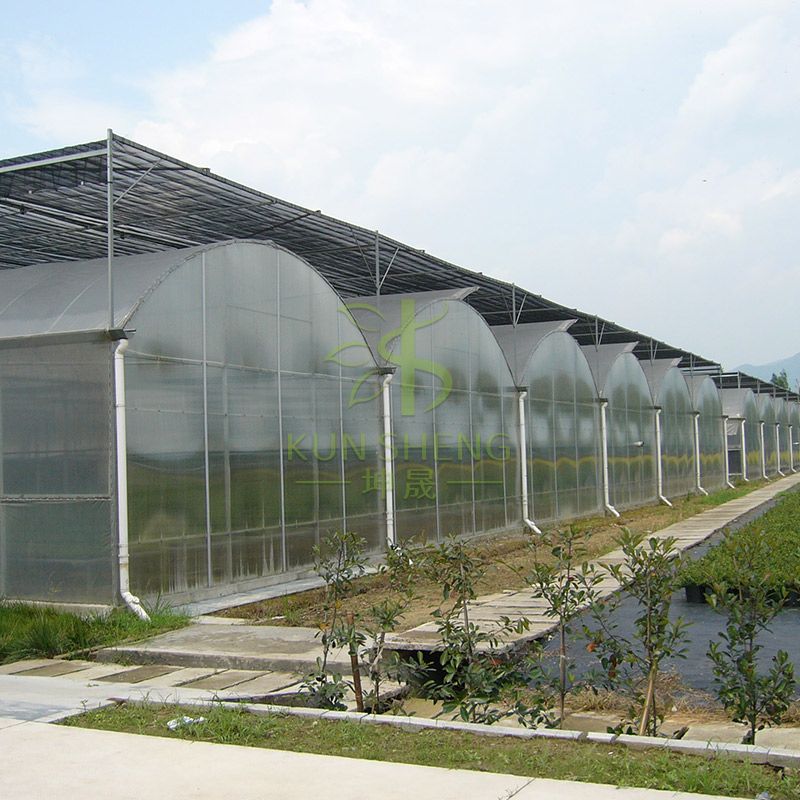Sep. 05, 2023
Agriculture
Commercial greenhouses have revolutionized modern agriculture and horticulture, offering a controlled and efficient environment for the cultivation of plants. These structures provide a range of benefits that have made them indispensable to the agricultural industry. Here, we explore the advantages of commercial greenhouses and their significant impact on food production and plant cultivation.
1. Year-Round Crop Production: One of the most significant advantages of commercial greenhouses is their ability to extend the growing season. By providing a controlled environment, they allow farmers to grow crops year-round, irrespective of external weather conditions. This ensures a consistent and reliable supply of fresh produce, reducing seasonal shortages.
2. Climate Control: Commercial greenhouses offer precise control over temperature, humidity, and light levels. This control allows growers to optimize growing conditions, leading to faster plant growth and increased yields. It also mitigates the risks associated with extreme weather events, such as frost, excessive heat, or heavy rainfall.
3. Enhanced Crop Quality: The controlled environment of a greenhouse promotes higher crop quality. Plants are less susceptible to pests and diseases, resulting in reduced pesticide use. Additionally, the consistent conditions contribute to more uniform growth, size, and appearance of the produce, making it more attractive to consumers.

4. Water Efficiency: Greenhouses are designed to capture and recycle water efficiently. Advanced irrigation systems can be employed to deliver precise amounts of water directly to the plant roots, reducing water wastage and ensuring optimal hydration for crops. This water-saving approach is crucial in regions with water scarcity.
5. Pest and Disease Management: Agriculture Greenhouses act as a physical barrier against many pests and diseases that can devastate crops in open fields. This reduces the need for chemical pesticides and allows growers to adopt more sustainable and eco-friendly pest management practices, such as introducing beneficial insects.
6. Increased Crop Diversity: Greenhouses enable the cultivation of a wide variety of crops, including those that are not well-suited to the local climate. This diversification can enhance a farm's economic resilience by reducing dependence on a single crop and tapping into niche markets for specialty produce.
7. Efficient Space Utilization: Commercial greenhouses are designed for efficient space utilization. Vertical farming techniques and adjustable shelving systems maximize the use of available space, allowing for higher crop densities and increased productivity per square foot.
8. Reduced Environmental Impact: Compared to traditional outdoor farming, commercial greenhouses have a smaller environmental footprint. Controlled environments lead to reduced soil erosion, water runoff, and fertilizer leaching. Moreover, by optimizing resource use, they contribute to sustainability and reduce overall resource consumption.
9. Crop Protection: Modern greenhouses shield crops from natural disasters such as hailstorms, strong winds, and excessive sunlight. This protection ensures a higher degree of crop safety and minimizes losses due to unpredictable weather events.
10. Research and Innovation: Commercial greenhouses are not only essential for food production but also serve as valuable research and innovation hubs. Scientists and agricultural experts use these controlled environments to conduct experiments, develop new crop varieties, and refine cultivation techniques, ultimately leading to advancements in agriculture.
In conclusion, commercial greenhouses play a pivotal role in modern agriculture, offering a wide range of advantages that contribute to increased food production, improved crop quality, and sustainability. Their ability to create a controlled, year-round growing environment has revolutionized the way we cultivate plants, ensuring a more stable and efficient food supply chain in an ever-changing world. As the demands on agriculture continue to grow, the importance of commercial greenhouses in meeting these challenges cannot be overstated.
Previous: The difference between organic fertilizer and chemical fertilizer
Next: What are the concerns of farmers about plastic seedling trays?
If you are interested in sending in a Guest Blogger Submission,welcome to write for us!
All Comments ( 0 )